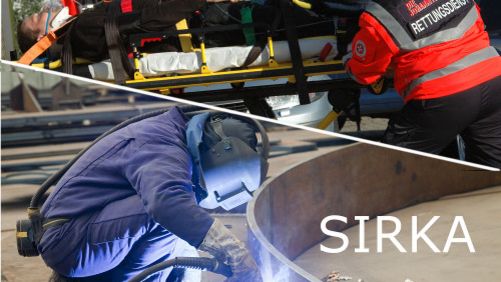Motivation
In many physically challenging jobs with heavy movements the risk for developing occupational illnesses after the age of 50 is significantly high. The aim of the SIRKA project is to develop a daily worn sensor suit to measure individual movements during work. In the end it helps the person wearing it to avoid problematic movements as the person gets immediately a feedback during the activity.
Goals and methods
The sensor suit is used in two phases. In the first phase, the „diagnosis“, the sensor-suit primarily records all movements in detail. This can be done preventively or based on specific problems. A physician and the client then analyze the collected information, of course with respecting privacy. Together they will develop physiotherapeutic strategies, e.g. changing movement habits, individual active exercises or using aids. In the second phase the sensor-suit is used in its warning mode, i.e. it monitors movements in daily work without recording and signals problematic movements and overall stress. As a use case, SIRKA examines the work done by welding personnel on a shipyard and by rescue service personnel.
Innovation and perspectives
The conceptual innovation is in the novel unobtrusive human-machine interaction and in the two nested feedback loops directly via the sensor-suit or indirectly via the responsible physician. Regarding technology, it is in the miniaturized integration of the sensors and the special method for fusing the available sensor data.
Partners
Budelmann Elektronik, Meyer-Werft, Hochschule Osnabrück, rofa Bekleidungswerk, Johanniter-Unfall-Hilfe, OFFIS


 Prof. Dr. Udo Frese
Prof. Dr. Udo Frese
